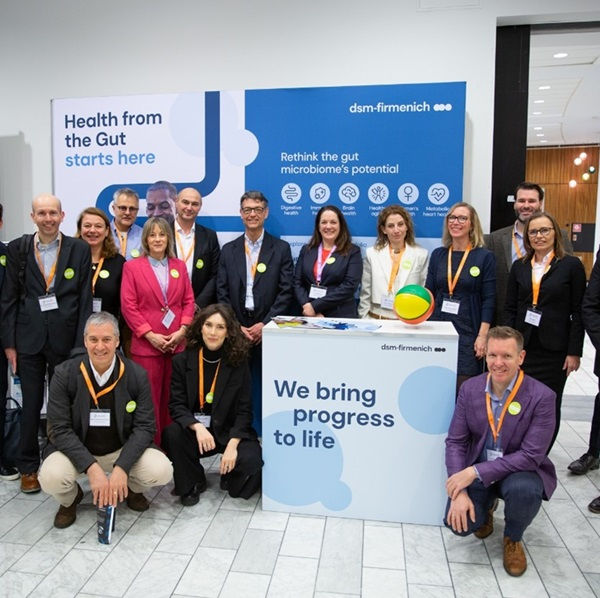News
September 7, 2017
Beyond immunity: vitamin C may significantly reduce the risk of cardiovascular mortality
Mounting evidence suggests that vitamin C may support cardiovascular health. A new study highlights that an increased intake of vitamin C may significantly reduce the risk of cardiovascular mortality (CVM) and, in some cases, the risk of cardiovascular disease (CVD), including myocardial infarction and stroke.

Summary
- New research shows a higher intake of vitamin C may reduce the risk of cardiovascular mortality by 70%
- The study is the latest in a plethora of research supporting vitamin C’s role in supporting heart health
- Supplementation can help individuals reach their desired vitamin C levels
- A study by dsm-firmenich has shown vitamin C to be the second most common supplement to be recommended by general practitioners (GPs) and pharmacists
- In addition, other nutrients including omega-3 fatty acids EPA and DHA have been linked to supporting cardiovascular health
Vitamin C has long been associated with immunity and, when faced with the common cold, a glass of orange juice is often the first thing people turn to for a boost. However, mounting evidence suggests that the health benefits of vitamin C may reach further than previously thought, particularly in supporting cardiovascular health. Notably, a study recently published in Nutrients has highlighted that an increased intake of the vitamin may significantly reduce the risk of cardiovascular mortality (CVM) and, in some models, the risk of cardiovascular disease (CVD), including myocardial infarction and stroke.1
As part of the Seguimiento Universidad de Navarra (SUN) project, data was collected from 13,421 individuals over the course of 11 years, with information gathered using questionnaires mailed to participants every two years. They were asked to report on how frequently they had consumed 136 different foods and beverages in the past 12 months, allowing researchers to understand not only the levels of vitamin C in their diets but other variables such as fiber and calorie intake. They were also required to provide medical details on any cardiovascular events they had experienced during this time. The analyzed data revealed that cardiovascular mortality was 70% less likely for those with a higher intake of vitamin C in their diet.
Unlocking the potential of vitamin C
As a powerful antioxidant, the potential role of vitamin C in reducing the risk of cardiovascular disease may be attributed to its ability to neutralize harmful free radicals, and in turn reduce oxidative stress. Research has also indicated vitamin C may support human health in a wider range of ways when the intake is high enough. For example, studies show that higher levels of vitamin C may help to lower blood pressure and can also help support the regeneration of other antioxidants, including vitamin E.2,3,4,5
The recommended daily intake (RDI) of vitamin C varies from country to country, with the UK suggesting 40mg a day and the US recommending 75-90mg for healthy adults. 6,7 However, many experts are in support of raising the global RDI to 200mg due to the wealth of evidence highlighting its benefits in higher doses. Emerging evidence on immune function, for example, suggest that daily intakes of 200 mg vitamin C might be advisable for the general adult population.8 More on this topic will be discussed by leading experts at the symposium ‘Vitamin C – are current recommendations sufficient?’ during the 21st IUNS International Congress of Nutrition, taking place in Buenos Aires from October 15th- 20th.
Reaching new levels
Most commonly associated with oranges, foods such as broccoli, strawberry, kiwi, kale and bell peppers are all sources of vitamin C. However, achieving a higher dose of vitamin C through diet alone can be difficult, as the recommendation from WHO and FAO to have at least 5 daily servings of fruits and vegetables are frequently not reached.9 While severe vitamin C deficiencies are not common nowadays, marginal deficiencies can be found in a large number of people, particularly in the US.10 To effectively increase intake, vitamin C supplements can be used. A recent study by dsm-firmenich set out to discover the opinions and awareness of healthcare practitioners on nutritional supplements and how this affects their interactions with patients. The results revealed that the second most common supplement to be recommended to patients by GPs and pharmacists is vitamin C.11
Discover more
To find out more about how vitamin C, alongside other vitamins and omega-3s, may help to support heart health, read our whitepaper ‘How Nutritional lipids support health across the life span’.
Related Content
Recommended Reading
-

2 April 2025
The gut microbiome as a pathway to supporting children with autism: New study reveals synbiotics' dual benefits for digestive and behavioral symptoms
-

11 March 2025
What's next for gut health? 5 breakthrough trends from Probiota 2025
-

21 February 2025
New CBD bioavailability study with CBtru®
Quick links
Customized blends of functional ingredients in one single, efficient premix.
Streamline your product development process and get to market faster.
From trade shows to conferences and other industry events, find out where you can meet us next.
Talking Nutrition, Health & Care
Explore new science, consumer insights, industry news and more in our latest articles.
Discover educational whitepapers, webinars, publications and technical information.
Request samples, place orders and view product documentation.